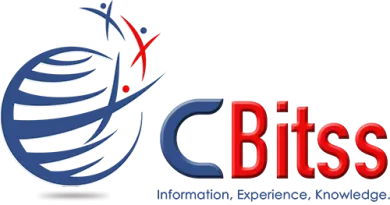Procurement Software Market Trends, Size, Growth & Industry Outlook | 2025-2034
Procurement Software Market Outlook
According to the report by Expert Market Research (EMR), the global procurement software market size achieved a value of USD 7.41 billion in 2024. The market is projected to expand significantly, with a compound annual growth rate (CAGR) of 12.0% between 2025 and 2034, reaching a market size of USD 20.53 billion by 2034. The growth of the procurement software market is primarily driven by increasing adoption of digital transformation strategies, the need for enhanced procurement efficiency, and the rising demand for cost-saving solutions in businesses across various industries.
Procurement software refers to the technology solutions designed to manage the purchasing process of goods and services within an organization. These tools help streamline procurement workflows, improve supplier management, enhance compliance, and reduce operational costs. Procurement software offers an array of functionalities including requisitioning, sourcing, purchase order management, supplier evaluation, contract management, and spend analysis. As businesses increasingly rely on automation to optimize operations, procurement software has become a critical tool in achieving operational excellence.
The rise of global trade and supply chain complexities, coupled with the growing emphasis on procurement transparency and compliance, are key factors driving the procurement software market. Companies are increasingly adopting these solutions to ensure greater accuracy, control, and speed in their procurement processes. Furthermore, the expanding trend of cloud computing and the growth of e-procurement solutions are likely to enhance the market’s growth prospects.
Driving Forces Behind Market Growth
One of the key factors propelling the global procurement software market is the increasing need for organizations to automate and streamline their procurement operations. With manual procurement processes being time-consuming, error-prone, and costly, companies are turning to procurement software solutions to reduce administrative burden, mitigate risks, and accelerate the purchasing cycle. By automating tasks such as invoice processing, purchase requisition, and purchase order creation, procurement software enables businesses to allocate resources more efficiently, leading to significant cost savings and improved overall productivity.
Additionally, procurement software solutions provide valuable insights into procurement spend, supplier performance, and procurement strategies. These analytics capabilities allow businesses to optimize their purchasing decisions, negotiate better terms with suppliers, and enhance supply chain resilience. The growing emphasis on data-driven decision-making and procurement optimization has further fueled the demand for procurement software.
The rise of global trade and the increased complexity of supply chains have also contributed to the growth of the procurement software market. As companies expand their operations across borders and engage with a diverse range of suppliers, managing procurement activities becomes increasingly challenging. Procurement software enables organizations to navigate these complexities by providing a centralized platform for supplier management, order processing, and compliance monitoring. This ability to efficiently manage and track procurement activities has become crucial as businesses strive to ensure the timely delivery of goods and services in a competitive global market.
Get a Free Sample Report with Table of Contents — https://www.expertmarketresearch.com/reports/procurement-software-market/requestsample
The Role of Cloud Procurement Software
Cloud-based procurement software solutions have become increasingly popular due to their ability to offer flexibility, scalability, and ease of implementation. Cloud platforms eliminate the need for on-premise infrastructure, reducing upfront capital expenditures and maintenance costs. As a result, small and medium-sized enterprises (SMEs) are also adopting cloud-based procurement solutions, benefiting from affordable pricing models and subscription-based services.
The growing trend of remote work and the need for real-time collaboration across departments have further boosted the adoption of cloud-based procurement software. These solutions provide businesses with the flexibility to manage procurement operations from anywhere, ensuring greater operational continuity. Furthermore, cloud-based systems can easily integrate with other enterprise resource planning (ERP) and financial systems, allowing businesses to maintain a unified approach to managing procurement, finance, and inventory.
Cloud procurement software offers advanced features such as AI-based analytics, machine learning-driven spend analysis, and predictive forecasting. These capabilities enhance procurement processes by automating repetitive tasks, improving accuracy, and helping procurement teams make better-informed decisions. As a result, cloud procurement solutions are expected to play a key role in the continued growth of the procurement software market.
Procurement Software Applications Across Industries
The adoption of procurement software spans across various industries, with key sectors such as manufacturing, healthcare, retail, and government leading the way. Each of these industries has unique procurement requirements that procurement software solutions address by providing customized features and functionalities.
In the manufacturing sector, procurement software is crucial for managing complex supply chains and ensuring the timely procurement of raw materials, machinery, and components. With the increased demand for just-in-time inventory and the need to minimize production delays, procurement software enables manufacturers to track supplier performance, forecast demand, and improve procurement efficiency.
The healthcare industry is increasingly adopting procurement software to streamline the purchasing of medical supplies, pharmaceuticals, and equipment. Procurement software enables healthcare organizations to manage vendor relationships, comply with regulatory requirements, and maintain cost-effective procurement practices. Given the highly regulated nature of healthcare procurement, procurement software solutions are becoming essential tools for ensuring transparency and compliance with industry standards.
The retail industry also benefits significantly from procurement software, as retailers are under constant pressure to optimize their supply chains and improve inventory management. With the increasing need for omnichannel retail strategies and the integration of online and offline sales, procurement software helps retailers ensure that they can meet customer demand while managing procurement costs effectively. Retailers use procurement software to manage supplier contracts, analyze procurement spend, and monitor product availability across various distribution channels.
The public sector, including government organizations and non-profit institutions, also relies on procurement software to ensure transparency, compliance, and cost efficiency in their purchasing processes. With an increasing focus on accountability and the efficient use of taxpayer funds, governments are adopting procurement software to streamline purchasing activities and minimize fraud.
Procurement Software Market Segmentation
The market can be divided based on deployment, end use, and region.
Breakup by Deployment
- On-Premise
- Cloud
Breakup by End User
- Retail
- Manufacturing
- Transportation and Logistics
- Healthcare
- Food and Beverage
- Others
Market Breakup by Region
- North America
- Europe
- Asia Pacific
- Latin America
- Middle East and Africa
Competitive Landscape
Some of the major players explored in the report by Expert Market Research are as follows:
- Fraxion
- GEP
- Kissflow Procurement Cloud
- Epicor Software Corporation
- Jaggaer
- Basware Inc.
- SAP SE
- Proactis Holdings Limited.
- Procurify Technologies Inc.
- Zycus Inc.
- Ivalua Inc.
- Microsoft Corporation
- Others
Security and Compliance Concerns in Procurement
As procurement software market handles sensitive financial data and supplier information, security and compliance remain top priorities for organizations. Procurement software providers are investing in advanced security features such as encryption, multi-factor authentication, and role-based access control to safeguard user data and prevent unauthorized access.
The increasing number of data privacy regulations, such as the General Data Protection Regulation (GDPR) in Europe and the California Consumer Privacy Act (CCPA) in the United States, has heightened the need for procurement software providers to ensure compliance with these laws. By ensuring that procurement data is managed securely and in accordance with regulatory requirements, procurement software solutions help businesses mitigate risks and avoid costly fines associated with non-compliance.
As businesses face growing concerns about cybersecurity and data privacy, procurement software vendors are offering solutions that provide robust security features, including secure cloud environments, compliance tracking tools, and audit trails. These features help organizations maintain control over their procurement processes while ensuring the integrity and confidentiality of their data.
Media Contact:
Company Name: Claight Corporation
Contact Person: George buttler, Corporate Sales Specialist – U.S.A.
Email: [email protected]
Toll Free Number: +1-415-325-5166 | +44-702-402-5790
Address: 30 North Gould Street, Sheridan, WY 82801, USA
Website: http://www.expertmarketresearch.com
Aus Site: https://www.expertmarketresearch.com.au




